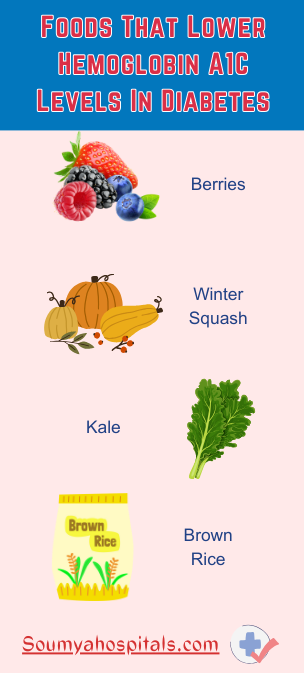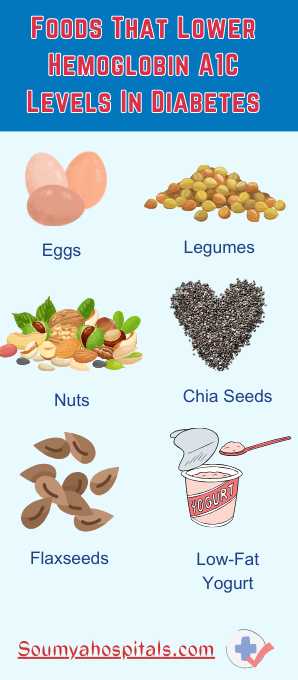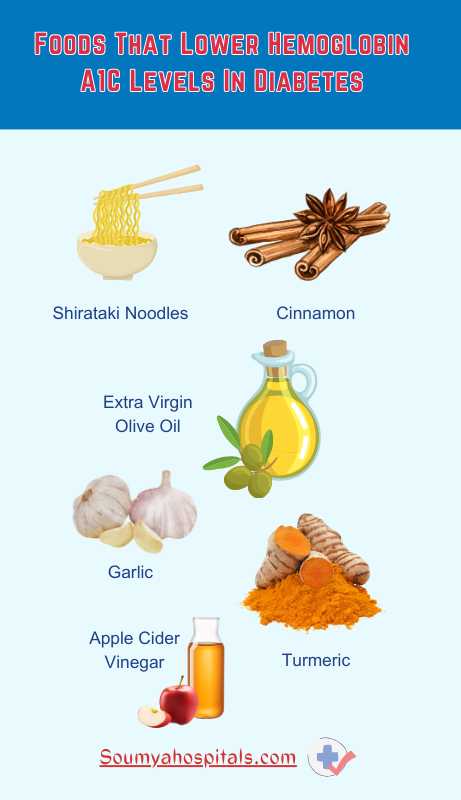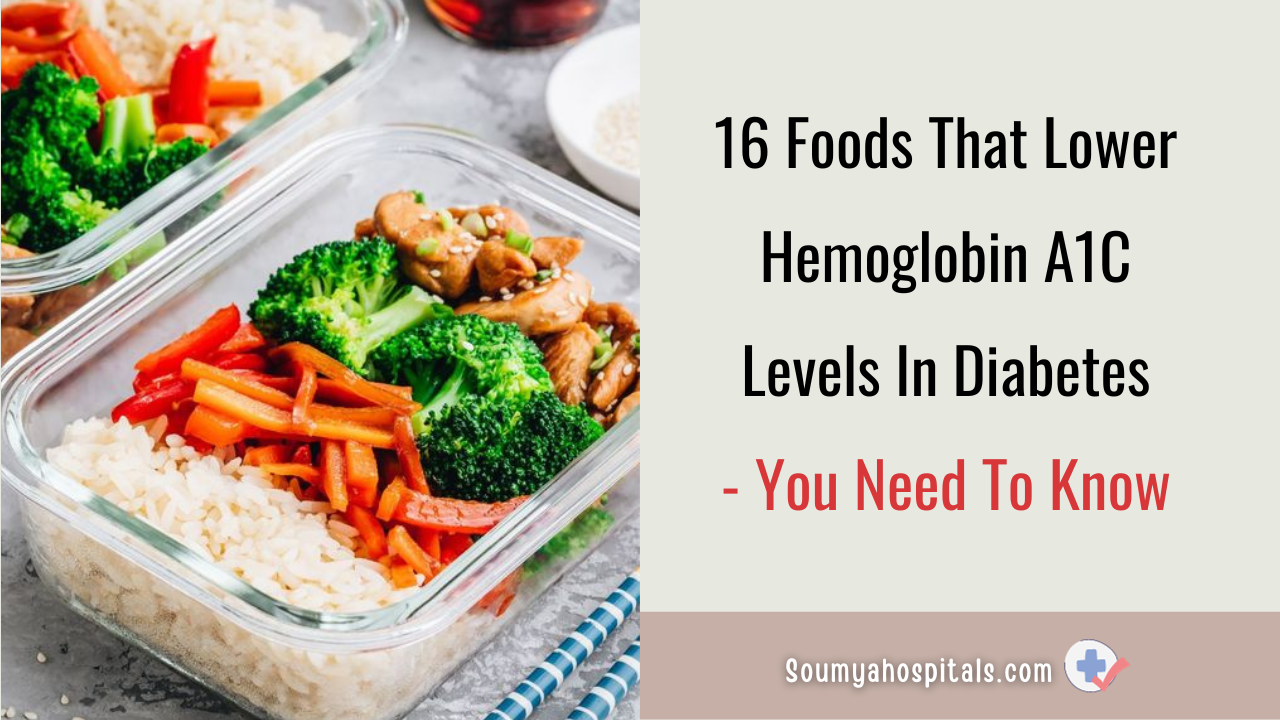One of the golden rules of diabetes prevention and care is constant monitoring of blood glucose levels through diagnostic tests. While a blood glucose test tells you how high or low your glucose levels are on that very day (which may vary depending on multiple factors), the HbA1c or glycated hemoglobin test tells you how high or low your glucose levels have been over the past few weeks or months and whether you are at risk of diabetes complications. Finding out your HbA1c levels is particularly important when you’re trying out a new diet, workout regime, or medication. And if your HbA1c levels are higher than usual, depending on whether you are diabetic, prediabetic, or healthy, you need to make some changes in your diet. Here’s a list of foods that could lower your HbA1c levels if eaten regularly.
To begin with, you’d need to avoid consuming refined, processed, high-fat, and sugary foods since they cause spikes in blood sugar.1 Here are all the foods you should have instead.
1. Berries
Berries have a low glycemic index, a term used for the rate at which a food gets digested by the body to form glucose, and aid in the management of blood sugar levels. They also have a low sugar content, which aids in weight loss and prevents spikes in blood sugar. In fact, popular options like raspberries, blueberries, and cranberries have fewer than 5 grams of sugar per cup.
In addition to this, berries are rich in antioxidants, vitamin C, and manganese, which reduce risks associated with diabetes like cardiac disease. Berries are also high in fiber, which avoids a sugar spike by slowing down the body’s breakdown of carbohydrates and absorption of sugar.
2. Winter Squash
This delicious and versatile vegetable is a good addition to a diabetic meal plan. Studies indicate that squash contains polysaccharides, a type of indigestible fiber, which prevents blood sugar from rising after eating. Besides this, the protein and unsaturated oils in the seeds might also have a moderating effect on blood sugar.
3. Kale
Kale is high in vitamin C, which might lower fasting blood sugar levels for people with type 2 diabetes. Additionally, it has a low glycemic index, is high in fiber, and low in calories. It also contains vitamin A, E, and K as well as folate, calcium, and iron. Besides, kale, it is recommended that diabetics increase their consumption of other leafy vegetables like spinach, bok choy, mustard greens, and broccoli.

4. Brown Rice
Brown rice, a coarsely ground grain, takes a longer time to digest than white rice, a finely ground grain and prevents blood sugar spikes. It also has a higher fiber content than white rice which, as stated earlier, manages blood sugar levels. This is why it is recommended that diabetics replace white rice with brown rice in their diet. The same holds true for other refined grains like white pasta, instant oatmeal, and cornflakes which can be replaced with whole grain pasta, steel cut oats, and wheat brain respectively.
5. Eggs
Although eggs are high in saturated fat, one study has shown that consuming 2 eggs a day as a part of a high-protein diet improves blood sugar levels in people with type 2 diabetes. They also keep you full for a long time, so they serve as good breakfast and snack options.
6. Legumes
Besides being high in antioxidants and having a low glycemic index, legumes are a high-quality source of protein that can replace red meat, which is linked to higher blood sugar levels, in your diet. They also don’t contain any saturated fat or cholesterol, which most kinds of animal meat are notorious for.
7. Nuts
Nuts like almonds, pistachios, peanuts, and walnuts don’t cause blood sugar spikes and are high in fiber, which slows down the body’s breakdown of carbohydrates and absorption of sugar. They also have a higher satiety point, which keeps you fuller for longer and decreases your overall calorie consumption, making them an ideal replacement for carb-heavy snacks.
8. Chia Seeds
This “superfood” has a high fiber content and low glycemic index, which makes them ideal for diabetics who’re looking to manage their blood sugar levels.12 In addition, the fiber content in chia seeds can also decrease the number of calories you absorb from other foods eaten at the same meal and make you feel fuller for longer, which together prevent overeating.
9. Flaxseeds
Like chia seeds, flaxseeds have a low glycemic index and keep you full for long. In addition to this, they contain insoluble fiber (which add bulk to your stool) with lignans (a type of antioxidant) that improve blood sugar control. In one study, people with type 2 diabetes who took flaxseed lignans for 12 weeks noticed a significant improvement in their A1C levels. Since our bodies can’t digest whole flaxseeds, make sure to purchase ground flaxseeds or grind them yourself.

10. Low-Fat Yogurt
Excess fat found in whole milk, yogurt, cheese, and butter don’t immediately affect blood glucose levels, but eating them can slow down your digestion and make it harder for your insulin to work. This, in turn, can cause high blood glucose levels a few hours after your meal. Besides, fat is high in calories and can lead to weight gain. Instead, opt for low-fat or reduced-fat options. As an added bonus, vitamin D contained in dairy might also play a role in improving insulin sensitivity (which causes an increase in blood sugar), particularly in children and adolescents.
11. Shirataki Noodles
Popularly featured in gluten-free, low-carb, and weight-loss regimes, shirataki noodles are also known to be diabetic-friendly. Studies indicate that konjac, a primary ingredient in shirataki noodles, reduces blood sugar levels in people with type 2 diabetes. However, further research is required to support this benefit.
Apart from incorporating the above-mentioned foods into your diet, be sure to keep up with your exercise regime. In addition to this, make sure to limit your portion sizes and avoid overeating.
12. Cinnamon
Adding cinnamon to your food can help you lower your A1C levels. Studies state that consuming just one gram of the spice, in addition to taking other precautionary measures, lowers HbA1C in patients with poorly controlled type 2 diabetes.
13. Extra Virgin Olive Oil
Although high-fat food might increase blood sugar levels, it is recommended that diabetics get 25–35% of their daily calories from monounsaturated and polyunsaturated healthy fats since they are known to reduce the incidence of heart disease and cholesterol, disorders that are associated with diabetes. Extra virgin olive oil contains the former and has been shown to reduce blood sugar as well. Additionally, when combined with other foods, olive oil might slow down the conversion of starch to sugar. Alternatively, you could also try consuming flaxseed oil or walnut oil.
14. Garlic
Here’s another reason to double down on garlic in your pasta, hummus, soup, and curry. Studies state that this spice aids in the management of blood sugar levels in people with type 2 diabetes. And while this particular study made use of garlic tablets (300 mg daily), you could just incorporate garlic-rich food into your diet or talk to a professional about the ideal dosage.
15. Turmeric
With this spice being added to milk, curries, and morning “health shots” apart from being sold as a supplement, it’s no surprise that turmeric’s benefits extend themselves to managing blood sugar levels as well. Studies state that curcumin (a yellow chemical in turmeric) lowers blood sugar levels in diabetic patients. In addition to this, it also lowers the risk of diabetes-related heart and kidney complications. To increase the absorbability of turmeric, combine it with black pepper.

16. Apple Cider Vinegar
Apple cider vinegar is a good addition to your morning “health shot,” salads, and dips since studies have shown it to improve insulin sensitivity and lower fasting blood sugar levels. Additionally, it is believed to reduce blood sugar response by 20% when consumed with meals containing carbs.23 One study showed that in people with poorly controlled diabetes, consuming 2 tablespoons of apple cider vinegar before going to bed led to a 6% decrease in their fasting glucose levels. And while further studies are needed to validate this benefit of apple cider vinegar, you could give it a go and see if it benefits you.
